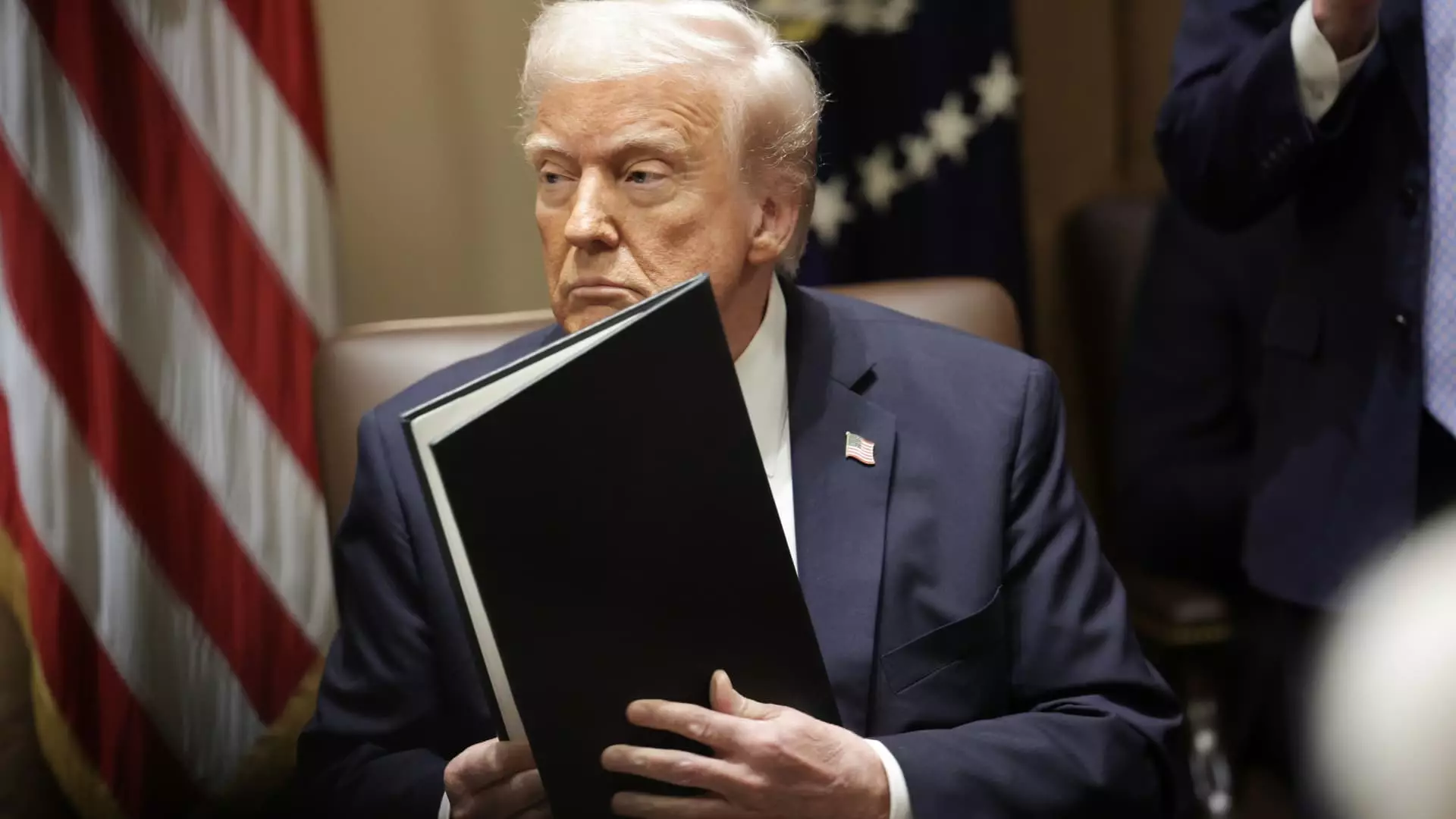The announcement of new tariffs on auto imports by President Donald Trump has sent ripples through the economic landscape, and not in a good way. Set to be unveiled during a press conference in the Oval Office, the timing couldn’t be worse, as uncertainty looms over the stock market. Just hours after the White House made the formal announcement, stock prices plummeted, signaling increased anxiety among investors. The tumultuous trajectory of Trump’s administration and its erratic policy changes create a persistent sense of insecurity, making it difficult for businesses to strategize effectively. This approach lacks the steadiness that economists and corporate leaders desperately crave to sustain growth.
Is “Liberation Day” Just a Mirage?
Trump has labeled April 2 as “liberation day,” but the reality may be far less exhilarating. The president’s intention to impose reciprocal tariffs has been portrayed as a bold move against countries that impose their own duties on U.S. goods. However, the sporadic hints of flexibility—like the recent suggestion that tariffs could be “more lenient than reciprocal”—create more confusion than clarity. The mixed messages undermine the initial resolve of the administration, leaving many to wonder if this is merely a smoke and mirrors exercise designed to garner fleeting headlines rather than a well-thought-out economic strategy.
Pre-Negotiation: A Double-Edged Sword
Treasury Secretary Scott Bessent’s suggestion that countries can pre-negotiate with the U.S. to avoid tariffs raises significant ethical concerns. The idea that nations can essentially “pay their way out” of tariffs skews the principles of free trade in favor of the highest bidder. It fosters an environment where only the wealthiest countries can navigate U.S. trade regulations effectively, thus marginalizing smaller economies that may already be struggling. This dynamic could lead to an unprecedented imbalance in international trade relationships, where economic clout trumps fair practices, leaving many nations at a competitive disadvantage.
Industry Voices of Dissent
The repercussions of these tariffs extend beyond the stock market and into the corridors of businesses that depend on smooth international relations. Industry leaders, who rely on predictable trading environments, have voiced apprehension over Trump’s latest aggressive tariff strategy. With a lack of clear guidelines and the looming threat of escalated costs, the capacity for American companies to navigate uncharted waters becomes severely compromised. In this chaotic landscape, they are increasingly questioning whether such tariffs will truly serve the greater interests of American workers and the economy.
A Path Forward or a Recipe for Disaster?
Trump’s approach to trade, especially regarding tariffs on auto imports, hints at a broader strategy rooted in immediate domestic political gains rather than long-term economic stability. While the allure of tariffs is understandable in the context of addressing trade imbalances, the dire ramifications of volatility suggest a deeper reckoning is needed. The perpetual cycle of uncertainty could easily lead to a downturn that impoverishes the very workers Trump claims to protect. Center-wing liberals might argue for a more strategic and calculated approach that seeks to balance the interests of American industries while promoting fair trade practices globally. The path ahead is fraught with challenges, and whether this administration will rise to meet them remains an open question.

